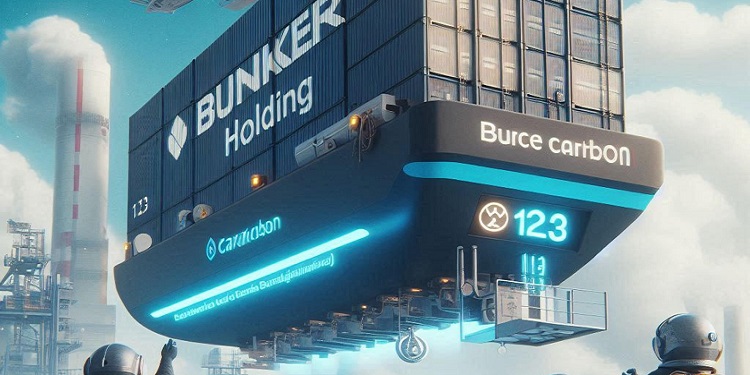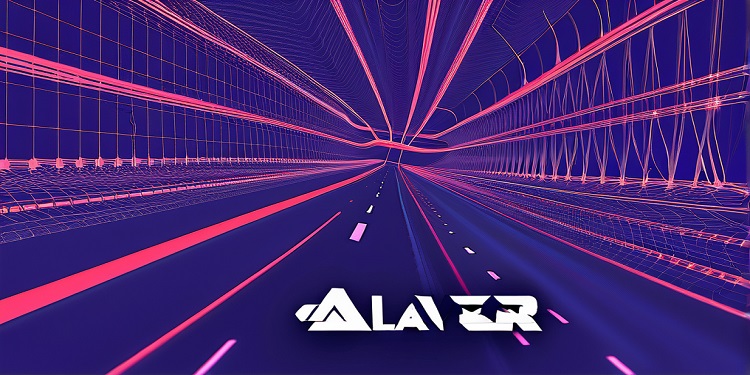Marine fuel supplier Bunker Holding has collaborated with carbon insetting firm 123Carbon and class society Bureau Veritas to successfully complete their first blockchain-powered carbon insetting operation. This innovative partnership aims to address the growing need for transparency and sustainability in the marine fuel industry by leveraging advanced blockchain technology.
The carbon insetting initiative involves the additional cost delivery of lower-carbon, alternative marine fuels, such as sustainable biofuel. This cost is shared among carriers, freight forwarders, and cargo owners within the same value chain, and is allocated based on a commonly accepted book and claim methodology. This approach ensures that the environmental benefits of using alternative fuels are distributed equitably across all stakeholders involved in the shipping process.
Enhancing Transparency and Accountability
Bunker Holding, through its integration with 123Carbon’s blockchain platform, now offers carriers, freight forwarders, and cargo owners enhanced transparency and assurance regarding the reduction of maritime emissions. The blockchain platform ensures that all transactions and insets are recorded immutably, providing a clear and verifiable trail of how emissions reductions are achieved and transferred within the value chain.
Tobias Troye, Head of Carbon Solutions at Bunker Holding, emphasized the company’s commitment to transparency in the creation and transfer of insets. He noted that while insetting itself is not a new concept, the maritime sector has had concerns about the conditions under which alternative fuels are supplied and the ownership of emissions reductions. The blockchain-powered solution addresses these concerns by providing a secure and transparent environment for managing and verifying insets.
Secure and Verified Insetting Solutions
123Carbon has developed an advanced platform for the issuance and management of carbon insetting certificates. Bunker Holding’s decision to use this platform, along with a fully branded solution to deliver certificates securely to its customers, highlights the company’s dedication to providing reliable and trustworthy services. Jeroen van Heiningen, Managing Director of 123Carbon, expressed satisfaction with Bunker Holding’s adoption of their platform and emphasized the importance of delivering certificates in a secure environment.
Bureau Veritas played a crucial role in the project as a third-party assurance partner. The organization was responsible for verifying the fuel intervention and all related documentation. This verification process ensured that all insets were issued according to the Smart Freight Centre’s Book & Claim methodology and 123Carbon’s assurance protocol. Bureau Veritas’ involvement added an additional layer of credibility and assurance to the project, reinforcing the reliability of the emissions reduction claims.
Paving the Way for Sustainable Shipping
This collaboration between Bunker Holding, 123Carbon, and Bureau Veritas represents a significant step forward in the maritime industry’s efforts to reduce its environmental impact. By adopting blockchain technology for carbon insetting, these companies are setting a new standard for transparency and accountability in the supply of alternative marine fuels. This initiative not only helps to reduce greenhouse gas emissions but also fosters greater trust among stakeholders in the shipping industry.
The successful completion of this blockchain-powered carbon insetting operation underscores the potential for similar projects to be implemented across the maritime sector. As the industry continues to seek sustainable solutions, the partnership between Bunker Holding, 123Carbon, and Bureau Veritas serves as a model for future initiatives aimed at enhancing environmental sustainability and operational transparency.
The continuous advancement of blockchain technology and its integration into various sectors, including maritime fuel supply, demonstrates its capacity to address complex challenges related to transparency and sustainability. As more companies adopt these innovative solutions, the overall impact on reducing global emissions and promoting sustainable practices is likely to grow, paving the way for a greener and more efficient shipping industry.









